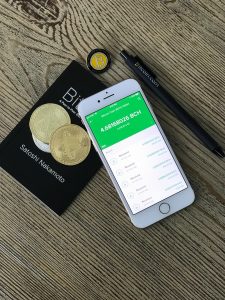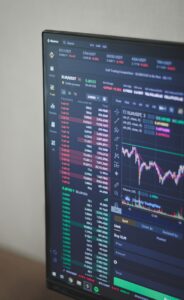Regulated Forex Brokers: A Comprehensive Guide to Understanding Their Role in the Forex Market
The forex market is a decentralized global marketplace where currencies are traded. It is the largest and most liquid financial market in the world, with daily trading volumes reaching trillions of dollars. To ensure transparency, fairness, and investor protection, the forex market is regulated by various regulatory authorities worldwide. In this article, we will delve into the role of regulated forex brokers and why it is crucial for traders to choose a reputable and regulated broker.
What is a Regulated Forex Broker?
A regulated forex broker is an entity that offers forex trading services and is subject to oversight and regulation by a regulatory authority. These regulatory bodies are responsible for setting and enforcing rules and regulations that govern the forex market and its participants. The aim of regulation is to protect investors, maintain market integrity, and prevent fraudulent activities.
Why is Regulation Important?
1. Investor Protection: The primary purpose of regulation is to safeguard the interests of traders and investors. Regulated forex brokers are required to adhere to strict guidelines and follow ethical practices, ensuring that clients’ funds are secure and protected. These brokers are also required to maintain segregated accounts, keeping client funds separate from the broker’s operating funds.
2. Market Integrity: Regulations help maintain the integrity of the forex market by preventing market manipulation, insider trading, and other fraudulent activities. Regulated brokers are subject to regular audits and inspections to ensure they are operating in a fair and transparent manner.
3. Financial Stability: Regulated brokers are required to meet certain capital adequacy requirements, ensuring they have sufficient financial resources to cover potential client losses. This helps protect traders from the risk of broker insolvency and provides an added layer of financial security.
4. Dispute Resolution: In the event of a dispute between a trader and a regulated broker, the regulatory authority can act as a mediator and help resolve the issue. Regulated brokers are obligated to follow the decisions and rulings of the regulatory authority, providing traders with an avenue for recourse.
How to Identify a Regulated Forex Broker?
Before choosing a forex broker, it is essential to verify their regulatory status. Here are some steps to help you identify a regulated forex broker:
1. Check the Regulatory Authority: Each country has its own regulatory authority that oversees the forex market. Common regulatory bodies include the Financial Conduct Authority (FCA) in the UK, the Securities and Exchange Commission (SEC) in the US, and the Australian Securities and Investments Commission (ASIC). Visit the regulatory authority’s website to verify the broker’s regulatory status.
2. Look for License Numbers: Regulated brokers are assigned unique license numbers by the regulatory authority. These license numbers can usually be found on the broker’s website or in their regulatory disclosures. Cross-check the license number with the regulatory authority’s database to ensure its authenticity.
3. Read Reviews and Recommendations: Online forums and review websites can provide valuable insights into a broker’s reputation and regulatory compliance. Look for reviews from reputable sources and consider the overall consensus before making a decision.
4. Contact the Regulatory Authority: If you are still unsure about a broker’s regulatory status, you can contact the regulatory authority directly. They will be able to confirm whether the broker is regulated or not.
The Risks of Trading with Unregulated Brokers
Trading with an unregulated broker exposes traders to a higher level of risk. Unregulated brokers are not bound by any rules or regulations, making them susceptible to fraudulent activities such as price manipulation, unfair trading practices, and even outright scams. Furthermore, unregulated brokers may not have the necessary financial resources to protect client funds, increasing the risk of loss in the event of insolvency.
In conclusion, regulated forex brokers play a vital role in ensuring the integrity and stability of the forex market. They provide a safe and transparent trading environment for investors, protecting them from fraudulent activities and ensuring their funds are secure. Traders should always prioritize regulation when choosing a forex broker and take the necessary steps to verify their regulatory status. By doing so, traders can trade with confidence and peace of mind, knowing that they are dealing with a reputable and regulated broker.






